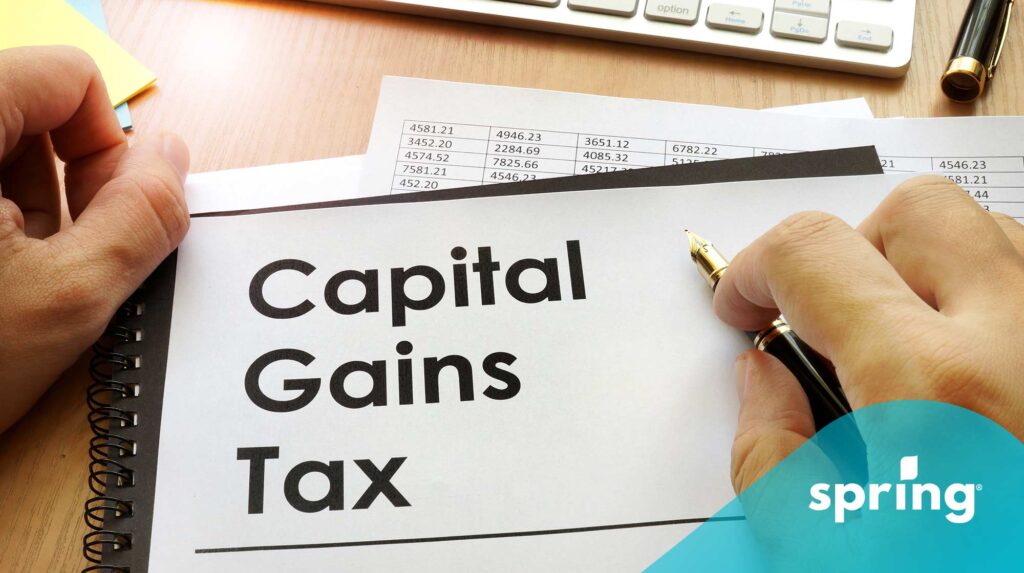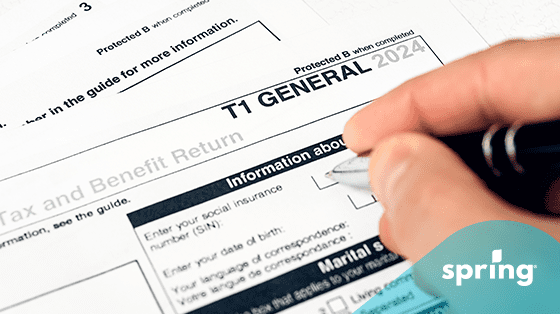Well, currently, there is the Canada Dental Care Plan, which is another federal government program that is available to some individuals who don’t have a current dental insurance policy. In order to get approved for this coverage, you do have to meet some income requirements and apply with the federal government.
How the Canada Dental Benefit Worked
As part of the government’s launch of the Canada Affordability Plan, they created the new Canada Dental Benefit. As of October 1, 2022, only the first benefit period of this dental benefit had been launched. Unlike other government benefits, this one isn’t automatically given to you when you file your taxes. You have to actually apply.
The application process for the dental benefit was online through your MyCRA account, or you can phone and apply directly. There are a few different payment amounts you could receive for this benefit, but keep in mind that this was only an interim benefit, and the last day to apply was June 30, 2023.
The second benefit period ran from July 1, 2023, to June 30, 2024, with applications opening on July 1, 2023. As of June 30, 2024, this benefit is now closed, and all dental benefits must be done through the Canada Dental Care Plan.
The Canada Dental Care Plan
Instead of a tax credit like the Canada Dental Benefit offered, the Canada Dental Care Plan helps to supplement the cost of dental care if you don’t have benefits through insurance or a benefits company. However, in order to be helped with these costs, you do need to be eligible for the CDCP.
Are These Benefits Only for Children
While the Canada Dental Benefit only applied to the cost of dental care for children, the Canada Dental Care Plan is available to anyone who qualifies. This includes adults, children, and seniors. However, you do have to meet the requirements.
Adult Eligibility
When it comes to being eligible for the Canada Dental Care Plan, you need to meet all the eligibility criteria in order to qualify. The first is that you don’t have access to dental insurance. This means that you don’t have any benefits through the following sources:
- Your employment benefits or your family member’s employer benefits, including health and wellness accounts
- A professional or student organization
- Your pension benefits or a family member’s pension benefits
- Coverage purchased by you or a family member through a group plan from an insurance or benefits company
That said, if you do currently have existing dental coverage through a provincial, federal or federal government social program, you’re still able to qualify for the CDCP. Upon approval, your coverage is then coordinated between the two plans in order to make sure there’s no missing coverage as well as no duplication.
If you meet this requirement, then you and your spouse/common-law partner must also have filed your annual income tax return. This is so your family’s net income from the previous year can be assessed to see if you qualify. You must have an adjusted net family income below $90,000 in order to qualify. Finally, you must also be a Canadian Resident for tax purposes.
When considering your adjusted family income, it’s important to remember that this includes your annual earned income, any universal child care benefit and Registered Disability Savings Plan income, as well as UCCB and RDSP amounts repaid.
Dental Plan for Seniors
When the Canada Dental Care Plan first opened, seniors and adults with a valid disability tax credit and/or who met the age requirements were able to submit their applications. From there, more and more people were able to apply. Now, all remaining eligible Canadian residents are able to apply. Other eligible Canadian residents previously had to wait until registration opened, but now many have a coverage start date as early as June 1, 2025.
How Much is the Canada Dental Care Plan?
When it comes to the Canada Dental Care Plan, most basic services are included in this coverage. These services include:
- Dental exams
- X-rays
- Cleaning and scaling
- Fluoride applications
- Sealants
- Permanent fillings
- Temporary fillings
- Pain control for diseased teeth
- Other treatments for cavities
- Endodontic Services
- Periodontal Services
- Restorative Services
- Removable Prosthodontic Services
- Oral Surgery
- Anesthesia or Sedation Services
- Orthodontic Services
The amount that’s covered by these services is based on the cost of the services and your annual income. For those who have an income below $70,00 annually, 100% (the full cost) of any eligible oral health care services will be covered. For those with incomes between $70,000 and $79,999, 60% of eligible costs will be covered, and 405 for those with incomes between $80,000 and $89,999.
Do All Dentists Accept This Coverage?
While most dentists will take Canada Dental Care Plan coverage, it’s important to check with dental offices to see. That’s because even if you see a licensed dentist, they don’t have to be one of the participating dentists in the CDCP program. You should verify the CDCP coverage before getting any work done.
What Happens Once You’re Approved?
Once you’ve been approved for the CDCP, Sun Life will send you a welcome package in the mail. They manage and provide coverage for Canadians on behalf of the federal government. It will include information on the CDCP, your physical member card, and your coverage start date.
Different Dental Benefits per Province
As of right now, the Canadian Dental Benefit offers tax-free payments towards basic dental care if you fall within the income requirements. This program is available to all of Canada, but are there individual provincial programs to help cover the cost of dental care?
Yes, there are. That being said, just like the government dental plan, they aren’t available to everyone, and you must apply to be considered for approval. Keep in mind that these programs can’t overlap, so if you qualify for one, you are unable to get the other. Let’s take a look at what your options are depending on where you live.
BC
In BC, basic dental coverage is only available if you are on income or disability assistance. It covers up to $1000 every 2 years for you and a spouse. For children, it covers up to $2000 every 2 years and up to $1000 per year for dental care required in a hospital under general anesthetic.
Alberta
In Alberta, there is the Alberta Health Services Dental Clinic. This clinic offers dental care at a reduced fee for those who demonstrate a financial need. In order to use this service, you have to apply with Alberta Health Services.Clinic. This clinic offers dental care at a reduced fee for those who demonstrate a financial need. In order to use this service, you have to apply with Alberta Health Services.

Saskatchewan
In Saskatchewan, those who are on income or disability assistance can also qualify for reduced or free dental benefits as part of their Supplementary Health Benefits Program.
Manitoba
In Manitoba, there are no programs to help with the cost of dental care.
Ontario
Ontario offers a Seniors Dental Care Program. This program covers basic dental services for low-income seniors over the age of 65. They also have a Healthy Smiles Program. This is for children who are low-income or in a qualifying Ontario program. Those who are on the Ontario Disability Support Program can also receive dental coverage.
Quebec
In Quebec, children under the age of 10 and those on financial assistance(as long as they have a claim slip) can receive certain dental services at no cost.
Nova Scotia
In Nova Scotia there is the Children’s Oral Health Program. This allows children 14 and younger to have their dental expenses covered, as long as they have a valid MS Health Card. Certain dental surgeries for all ages are also covered upon approval.
PEI
PEI has 4 different provincial dental programs, but the one that covers basic dental costs is the Provincial Dental Care Program. This program covers dental care services for low-income families. You must fill out an application to receive approval.
New Brunswick
In New Brunswick, there is a Health Services Dental Program. This program covers those who are 19 or older, aren’t covered under private insurance, and are clients of health services.
Yukon
The Yukon has a dental program for those who don’t have dental insurance benefits. Your approval is based on your annual net income compared to the number of people that are in the household. An income of $60,000 or less for an individual, $90,000 or less for an individual with 2 children, and so on.
Nunavut
Nunavut has a dental health program for children grades aged 7 and younger. These services are provided by dentists, dental hygienists, and other oral health professionals. You do have to register your child for them to receive these services.
Northwest Territories
Certain communities in the Northwest Territories offer dental services to children. It is available through the schools. There is also an extended benefits program for seniors that you can get with an approved application. It covers a variety of services, including dental care.
Final Thoughts
For those in Canada who currently don’t have access to dental insurance, you could see some relief when it comes to paying for your dental appointments. Eligible Canadian residents could start receiving their dental services covered if they meet the eligibility criteria. Those who qualify but only receive partial coverage will have co-payments made towards their overall dental costs.








